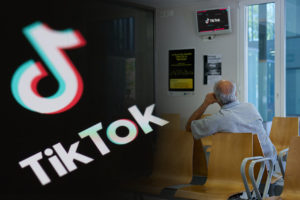The role and function of the Malaysia Digital Economy Corporation (MDEC) as a promoter of Malaysia’s digital economy cannot be over-emphasised. The need for operators to embrace digitalisation in their businesses is not a choice anymore.
Take for instance the COVID-19 pandemic. It clearly showed that most SMEs, micro-enterprises, and start-ups were not prepared. The outbreak crippled business operations, rendering the breakdown in supply chain mechanisms, disrupting internal company processes, stakeholder communications and disrupting production output – leading to revenue losses, pay-cuts, and loss of jobs.
Wake up call for organisations
Many may have to restructure their businesses whilst others may have to wind up. The picture is not pretty. The COVID-19 pandemic was a wake-up call that showed how vulnerable businesses were in the face of adversity.
The timing was impeccable when MDEC, which provides leadership and critical support to various companies and industry sectors, introduced the #DigitalvsCovid movement. The movement banded together about 80 tech companies to offer digital solutions (automation and digitalisation) to SMEs and micro-enterprises on a pro-bono or discounted basis. This lifeline would help mitigate the socio-economic shortcomings of businesses during this period of economic volatility.

Call to pivot and innovate
Today, as the business ecosystem evolves with the emergence of IR4.0, one must give due recognition to the importance of digitalisation and the digital economy. By embracing digital technologies, companies would not only be optimising operational efficiency and cost but also have the opportunity to expand into new global markets.
The business landscape is a dynamic one – it has now evolved to become a borderless frontier with new market opportunities all the time.
As the driver of the country’s digital economy, MDEC is focused on high-quality growth through strategic digitalisation initiatives nationwide. It has stepped up efforts to drive these capabilities, which is in keeping with the aspirations of the nation’s Shared Prosperity Vision 2030.
One of MDEC’s units, the Global Growth Acceleration division, has been tasked to identify industry-relevant business continuity solutions using digital technologies in efforts to increase the participation and growth of the digital economy.
In this context, the organisation’s aim to digitally upskill the workforce; promote digital business and digital investments augur well for the nation. It has the responsibility of converging business and technology so that organisations can operate efficiently, whilst tapping into emerging opportunities.
Embrace digital transformation
In the wake of the COVID-19 pandemic, businesses that were adversely affected or showed certain shortcomings should relook at their business and operating structures. Whether it involves internal operations and processes, supply chain management, finance and procurement or human resource, digital technology has a major role to play.
These would be the next steps when business resumes under a ‘new normal’ circumstance. The protective measures essentially strengthen companies’ market resilience during times of adversity.
The business landscape is a dynamic one – it has now evolved to become a borderless frontier with new market opportunities all the time. It is therefore important for businesses to equip themselves with appropriate technologies to take advantage of the opportunities that exist.
It has been anticipated that the digital economy will continue to be one of the largest contributors to the country’s gross domestic product. If this is but a hint, businesses would know where their future lies.

Success Stories: Digital Done Right
Digital technology has not only benefited organisations in their efforts to facilitate and streamline business operations. To some, it has enabled them to bring value and benefit other communities, whilst others have capitalised on the digital experience to expand their market presence.
The organizations below have been randomly selected with no particular preference.
Huawei Malaysia
Tech giant Huawei Malaysia, in its efforts to combat the Covid-19 pandemic, offered technological solutions, which included video conferencing, wireless network coverage, artificial intelligence (AI) and smartphones to the Ministry of Health.
The solutions are designed to facilitate remote online consultations, enhance the efficiency and effectiveness of diagnosis and treatment, and ensure continuous communication in real-time between the government and public hospitals.
The company’s IR4.0 driven AI and cloud computing solutions came at the appropriate time. Providing real-time video conferencing between quarantine-designated hospitals and the Health Ministry as well as wireless network coverage for hospitals, wards and emergency medical sites. The applications have also enabled early detection and diagnosis of infected patients.
Such applications are highly beneficial, especially for medical front-liners, where quick turn-around time is essential in establishing (effective) treatment protocols and follow-up initiatives.
Lazada Malaysia
Resulting from the COVID-19 outbreak and the movement control order (MCO), the vegetable farmers in Cameron Highland were a major predicament – they could not get their produce to the vendors, which would result in discarded produce.
Fortunately, just when all hope was lost. E-commerce platform Lazada Malaysia threw in a lifeline. Using technology and logistics, the company got the farmers’ produce onto its platform, direct to the consumer market.
Not only were farmers’ revenue streams restored, but a new e-commerce channel direct to the consumer market was established. The pandemic has created a ‘new normal’ in the food supply and distribution chain.
After the Cameron episode, Lazada put in motion an effort to help local agricultural businesses to digitalise and match urban demand for fresh produce and groceries. Fresh produce can now be delivered direct to the consumers’ doorstep!
Hup Foon Auto Supplies
Hup Foon Auto Supplies is in the automotive parts business, which has been supplying vehicle parts for the local market. Operating traditionally for the past 40-odd years, change was inevitable with the advent of new technologies.
As online transactions began gaining popularity, the company, so as not to be ‘left behind,’ shifted its business strategy and engaged in e-commerce to promote sales and marketing.
Hup Foon’s market grew, expanding beyond the local market into the global forefront. Today, they receive orders from abroad.
Hup Foon is a participant of the Digital Free Trade Zone (DFTZ) initiative, which facilitates cross-border trade and enables local businesses to export their goods with a priority for e-commerce.
TRL (South East Asia)
TRL has been producing and packaging fresh durian fruits for local consumption. Since commencing business in 2012, the company expanded its business scope by not just limiting itself to the domestic but also the export market, thus increasing its customer base worldwide.
Just like Hup Foon, TRL is a participant of the DFTZ initiative and leveraged on the internet economy and cross-border e-commerce activities to promote and export its products.
In a nutshell, digital technology cuts through borders, leverages on cross-border opportunities, thus paving the way for businesses to grow and expand exponentially. This increases companies’ market presence and share.
The shift towards digitalisation is an important step towards strengthening resilience, increasing market opportunities, and most importantly, ensuring sustainability.






